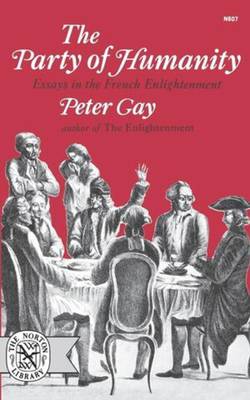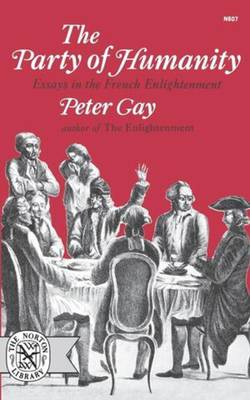
- Afhalen na 1 uur in een winkel met voorraad
- In januari gratis thuislevering in België
- Ruim aanbod met 7 miljoen producten
- Afhalen na 1 uur in een winkel met voorraad
- In januari gratis thuislevering in België
- Ruim aanbod met 7 miljoen producten
Omschrijving
The nine related essays in The Party of Humanity fall into three divisions: three are on Voltaire, presenting the great philosophe as a tough-minded, realistic man of letters who tried to reshape his world, rather than as a merely brittle and shallow wit. Then, three essays discuss the French Enlightenment as a whole and seek for the unity underlying the diversity of tempers and attitudes among its leaders. The last three, which include Mr. Gay's well-known critique of Carl Becker's The Heavenly City of the Eighteenth Century Philosophers, challenge some widely accepted views of the Enlightenment. The longest chapter here is a detailed examination of Rousseau and his reputation among his interpreters.
What all nine essays have in common, apart from their portrayal of the philosophes as serious and engaged partisans of humanity, is that they are essays in the social history of ideas; they all treat ideas as inseparable from the specific social and cultural setting from which they emerge, and which they affect.
Specificaties
Betrokkenen
- Auteur(s):
- Uitgeverij:
Inhoud
- Aantal bladzijden:
- 320
- Taal:
- Engels
Eigenschappen
- Productcode (EAN):
- 9780393006070
- Verschijningsdatum:
- 1/10/1971
- Uitvoering:
- Paperback
- Formaat:
- Trade paperback (VS)
- Afmetingen:
- 127 mm x 203 mm
- Gewicht:
- 349 g

Alleen bij Standaard Boekhandel
Beoordelingen
We publiceren alleen reviews die voldoen aan de voorwaarden voor reviews. Bekijk onze voorwaarden voor reviews.









